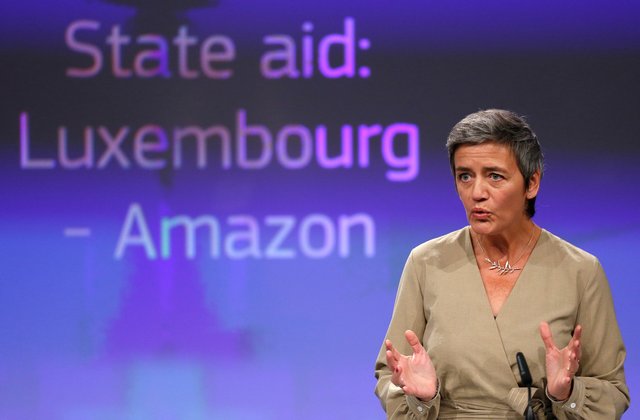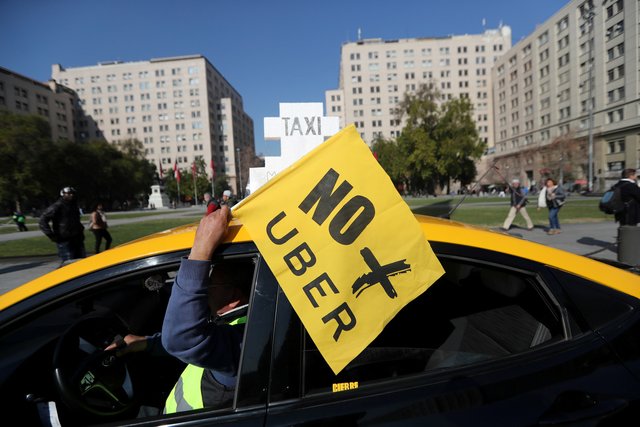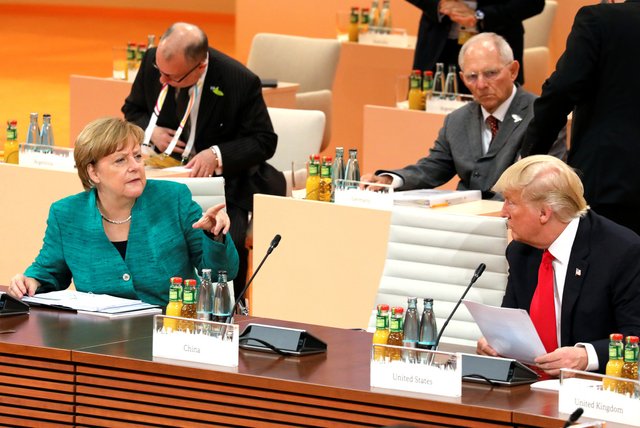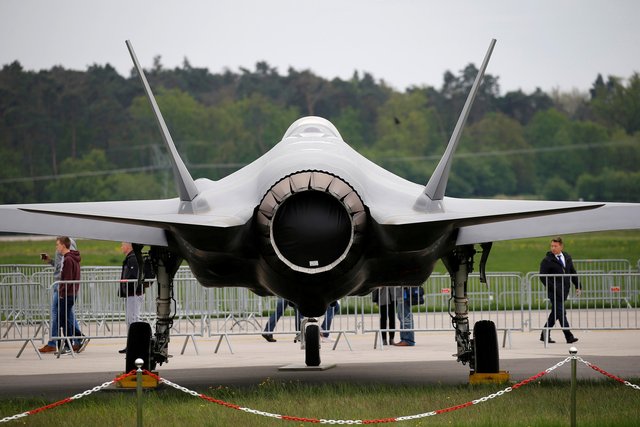Is America losing its grip on world economy?
5 big defeats for US financial interests abroad
© REUTERS/Kevin Lamarque
Donald Trump made it a banner promise of his presidency to stop the US being abused as the world’s “piggybank” – but not all foreign powers seem to be cowed into submission by his assertive style of foreign economic policy.
The United States remains the world’s second-biggest exporter after China, but these five cases show that it can’t always get its own way – even among its allies. Is this a consequence of Trump’s personal abrasiveness, a period of painful adjustment before as the giant rouses, or perhaps a harbinger that the rest of the world no longer needs America as much as it used to?
No US alternative to Huawei
A Huawei production line. © REUTERS/TYRONE SIU
Washington tried to scare other Western countries into dropping a Chinese telecoms giant from supplying 5G network equipment, claiming Beijing could capture any data transferred through Huawei devices “at will.” But both Germany and the UK refused to bar Huawei from participating in tenders, with Berlin publicly rebuking Washington by saying that it has its “own security standards.”
The impact will be massive: the super-fast network will power not just telephones and computers, but likely any piece of sophisticated electronic equipment in your home for years to come.
Did Washington fail because the case made by its officials appeared to be based entirely on evidence-free hypotheses, to follow other red scares of various hues? Or was it because the US has no 5G provider of its own to match up with the might of Huawei, on which countries around the world have become increasingly reliant?
Brussels sets trap for tech giants
European Competition Commissioner Margrethe Vestager takes down Amazon in a presentation in Brussels. © REUTERS/ FRANCOIS LENOIR
The EU led a futile crusade to dismember Microsoft in the 1990s, but the assault on American tech giants by European lawmakers both in Brussels and through national governments is on an entirely different scale.
From trying to regulate Facebook and Twitter’s content monitoring to Amazon’s tax practices to harrying Google for abusing its dominant position and levying a record $5 billion fine, the European Union has set itself up for years in the courtrooms against the American giants’ legal teams.
Ironically, with its hunt for Russian trolls and fake news, the US has done more than any other country to tarnish the image of its own companies, meaning that almost any measure against them, however punitive or unrealizable, will be met with no resistance from the public.
Uber not (always) welcome
An anti-Uber protest in Chile. © REUTERS/Ludovic Marin/Pool
If the battle against the EU is a grand strategic campaign, the difficulties faced by US peer-sharing companies like Uber and Airbnb are more akin to a street-by-street city battle, and for every new market they have cracked, a lucrative one wipes out their business at the stroke of a single vote or edict.
Uber is currently locked out from markets as diverse as China, Turkey, and much of the European Union, while new labor regulations elsewhere could lessen its advantage versus traditional cab providers. Meanwhile, Airbnb struggles with pushback in many of the world’s most popular destinations, including Paris, Barcelona, Los Angeles and Japan.
Worst of all, rather than being regarded as innovations that make life easier – which they often do for the end consumer – these unicorn disruptors are increasingly being treated as law-skirting, employee-abusing parasites.
Nord Stream 2 goes ahead
Donald Trump hasn't managed to convince Angela Merkel over Nord Stream-2 © REUTERS/Ludovic Marin/Pool
The US is betting on liquefied natural gas (LNG) becoming the world’s top fuel by the end of the next decade. But to propel itself to the top of the new export industry, which requires heavy investment in infrastructure for a product that is not always competitively priced, the US has had to use all of its economic and lobbying prowess.
So every one of the dozens of times Donald Trump – with backing from draconian Senate legislation – has insisted that Germany must abandon its Nord Stream 2 project with Russia, he has not just been fearing the Kremlin’s hold over Berlin, but propping up American LNG exporters. Germany has held firm, preferring to divorce house heating from politics and US interest.
And now a 10 percent tariff imposed by China – which is something of a running theme here – has also resulted in the postponement of the construction of at least one major facility in the US. Washington will argue that this is a hitch on its way to unstoppable domination of a boom industry, but the road ahead for American interests will be full of unexpected obstacles, many of them self-inflicted, others inevitable.
S-400 v F-35
F-35 - no longer coming to Turkey. © REUTERS/Axel Schmidt
The US, the top global weapons exporter, has long been able to rely on its supplies to military allies as a reliable income stream. Which is why the American suspension of its F-35 supplies to Turkey – in protest against its purchase of Russia’s S-400 missile defense system – provokes concerns that go beyond the monetary.
If more allies – particularly non-NATO states such as Saudi Arabia – drop their cast-iron loyalty to American weapons and look for options that are better value for money, this could force the US government to spend even more money propping up its successful but complacent giants like Lockheed Martin and Boeing (which has other problems of its own recently).
More concerning still is that while NATO countries continue to lag in their defensive spending, the countries where defense budgets are ballooning fastest, China, India and Russia, are either not dependent on American supplies, or actively opposed to them. Whereas 25 years ago it looked like all of the major economies would eventually join America’s world order, it now looks like the other hemisphere is forging its own path.
Original: https://www.rt.com/news/455723-huawei-uber-amazon-eu-trump/






To listen to the audio version of this article click on the play image.

Brought to you by @tts. If you find it useful please consider upvoting this reply.
This has been happening for very long. It's nothing recent. China has been a go-to place for high-tech and talent. Most companies in China don't even accept Masters degrees as entry-level job that's just how competitive the job market is in China, hence why many decide to migrate to find better opportunities in western countries.
To the question in your title, my Magic 8-Ball says:
Hi! I'm a bot, and this answer was posted automatically. Check this post out for more information.
I agree with what Trump is trying to do, just don't agree with his tactics/style.
I'm inclined to agree. There's nothing inherently wrong with putting the ideals of your own nation first. But you have to approach it the right way or this happens...